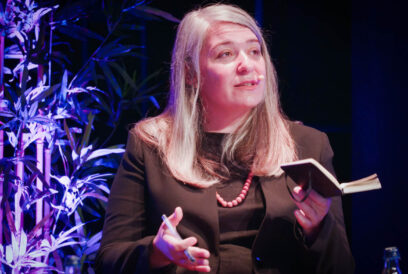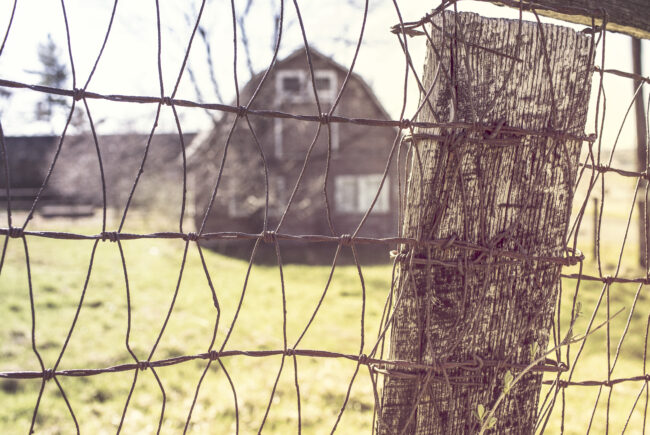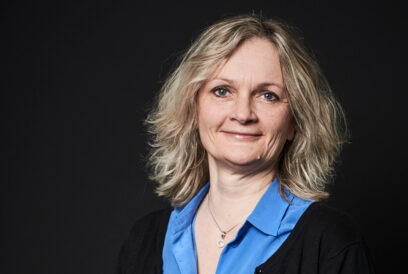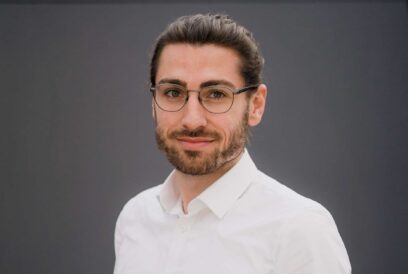

What is the democratic potential of adult education in an age of migration?
What is the democratic potential of adult education in an age of migration?
The “refugee crisis” is a stress test for European societies. The challenge is not to foster migrants into pre-given democratic values, Magnus Dahlstedt argues. The challenge is to retain adult education’s ability to question pre-given values. The text is an essay written for issue 1/2017 on New Forms of Citizenship.
Since the end of 2015, more than a million people have been seeking refuge in Europe. Across water or over land, children as well as adults are fleeing war, persecution, and poverty. Thousands of them disappear without a trace or drown beneath the waves. Most of the refugees come from the war-torn Syria. In several of the member states of the European Union, exceptional policy measures have been taken in order to handle the so-called ‘refugee crisis’ – such as intensified border control, the introduction of identity checks at specific checkpoints as well as within the borders of a country, and restrictive rules for the reception of asylum seekers.
This precarious situation in Europe raises a number of crucial questions about the state of citizenship in contemporary Europe, during an age of large-scale international migration. In this particular age, established conceptions of citizenship and belonging to the societal community are renegotiated: Which characteristics, abilities, or values should people have in order to belong to a certain social community, in the European Union, its member states as well as social communities elsewhere? Who is included in the social community and who is excluded? Furthermore, the situation addresses a series of crucial question concerning learning as a means of inclusion into the societal community.
In the wake of the so-called ‘refugee crisis’ in Europe, an increasing attention has been put on the potential of civil society in general and the organisations of adult education in particular, for the inclusion of refugees into the mainstream society. This is not least the case in Sweden, together with Germany the member state in the European Union having received the largest proportion of refugees in the last couple of years.
In Sweden, there is a strong tradition of adult education as a means of including the excluded parts of the population into mainstream society. Ever since the late 19th Century, adult education has been a crucial part of the social formation and the welfare regime in Sweden. According to a dominant conception, established already in the late 19th Century, adult education has had the function of challenging the status quo and empowering the excluded population – particularly the working class.
With the building of the Swedish welfare model, from the 1920s onwards, adult education became part of the governing of society and building democracy from below. Here, there was a particular way of conceptualising adult education, i.e. as a means of educating the masses into democracy. In a way, adult education was understood as a domain of democratic fostering. By participating for instance in study circles – so the argument goes – the adult learners learn how to engage in a debate, listen to other’s arguments. They are – by participation – fostered into democratic citizens.
This conception of adult education and its democratic potential has with time become part of the Swedish national identity. With the building of the Swedish welfare model, the primary focus of the national identity was put on socio-political rather than on ethno-cultural ties. Modernity and a vibrant well-functioning democracy became the over-arching principles on which Swedish national belonging was based. Here, the organisations of adult education became important crucial parts of a broader Swedish self-image.
This particular Swedish self-image is still alive. However, recently, this self-image has been somehow challenged – not least in the wake of the refugee situation in Europe of today. As in several other countries throughout Europe, the responses to the so called ‘refugee crisis’ has been substantial restrictions in Swedish migration as well as integration policy, with a range of policies emphasizing the obligation of migrants to adapt to the norms of Swedish society. Accordingly, there has in recent years been a quite drastic change in the course of Swedish multiculturalism, which was for quite long internationally well recognized for its inclusion of migrants and recognition of migrants’ cultures.
In the context of the current refugee situation in Europe – as mentioned previously – there has once more been a strong emphasis on the role of adult education as a means of social inclusion. This time, migrants, and particularly newly arrived refugees, are important target groups for adult education. As in the history of Sweden and adult education in Sweden, there is a strong hope that adult education may have a role for migrants today similar to that for the working class in the late 19th and early 20th Century.
Here, adult education is conceptualised as a route to inclusion into the Swedish democratic community. In line with the predominant conception of Swedish adult education, the participation in adult education makes it possible for migrants to learn and acquire the skills needed to become part of a wider Swedish democratic community. Accordingly, the migrants – as the Swedish working class before them – can be fostered into democratic citizens and included in the democratic community. In the context of adult education, there is a recurring metaphor of migrants as the working class of today.
Although there is indeed a potential of adult education when it comes to challenging the status quo and for making it possible to include the sections of the population who are in the margins, there is a need to be careful.
The recurring metaphor of migrants of today as being the working class of yesterday tells us something quite important. The working class did have the possibility to challenge the status quo by educating themselves to become equal democratic citizens – where learning for citizenship was a horizontal process of mutual recognition.
However, the situation for migrants in today’s Sweden is quite different. As a range of studies have indicated, in the context of Swedish adult education there is a strong tendency to make a difference between – on the one hand – the already established democratic ‘core values’ – defined as particularly and exclusively Swedish – and – on the other hand – the migrant Others. Here, the migrants are repeatedly described in terms of deficit and positioned as in need of learning – or rather adapting to – the established, already given democratic values. According to such a rationality, learning becomes not really a relationship between equals, but rather un-equals, between those in need of learning – the migrants – and those teaching – the Swedes.
In adult education, there has for decades been a lively debate on this particular situation and the challenges it poses when it comes to developing a democracy that is more inclusive – irrespective of ethno-cultural or other background. This discussion has to be continued.
Because one thing is certain – at least in my mind: In the political context of today, the most crucial challenge is not that migrants are in need of being fostered into seemingly static and pre-given democratic core values. The main democratic challenge today is rather the dominant way of conceptualising the political situation of today as some kind of end-station, where there are no options, where democracy is already established and nothing is left to struggle for than the assimilation of those on the outside – i.e. the migrants.
In this context, it is urgent to emphasize – once more – the role of adult education for challenging the current and struggling for a different social order, where democracy is something in the constant making rather than something given and settled.





